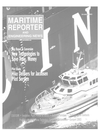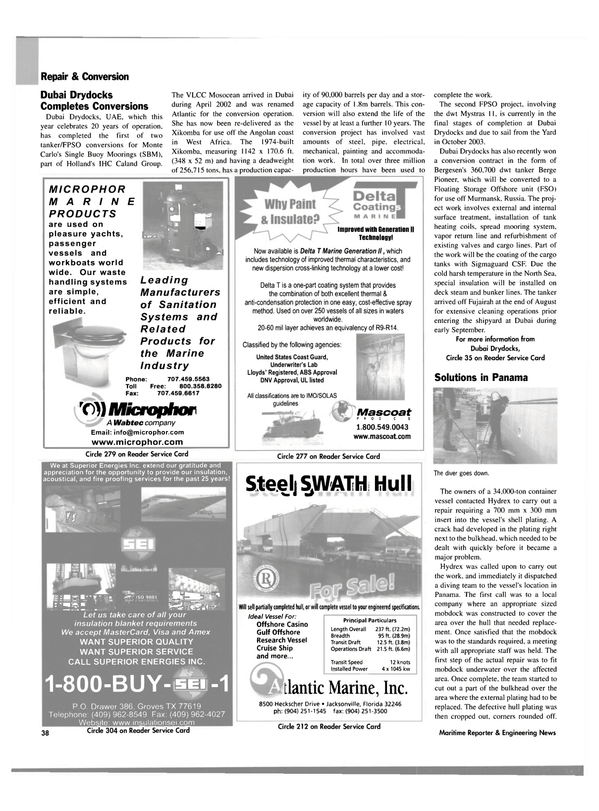
The Evolution of Marine Painting
Evolution is an interesting word. The Dictionary defines it as "an ongoing process of development". While the term is most closely associated with Human development, it also applies equally well to manufacturing and technology.
In the Marine Industry, examples of evolution in the production process include: Computer Aided Modeling Computer Controlled Machining; Computer Controlled Systems Management.
When compared to older methods, the newer technologies offer levels of efficiency and predictability that were previously unattainable. This is due, in large part to the increased use of automation and the upgrading of manual labor to a role of programmer/technician.
Ask a Shipyard Manager how this Evolution affects Production and you are likely to hear terms like " lean, increased through put, dependability and consistency" sprinkled throughout his response. Not all the areas of the Marine Industry have been evolving at the same rate, however. In the marine coatings sector, the area of coatings development has been rapidly moving from the many layered, lower solids coating systems to advanced high solids or zero solids materials that are applied in fewer passes. But, in the equally important areas of Surface Preparation and Coatings Application, the continuing dependence on labor intensive manual methods has kept these two areas of Marine Coatings from achieving the efficiency and quality that has become synonymous with Automotive production lines.
In the Automobile coatings industry, wherever it has been economically feasible and technologically possible, the worker holding the spraygun (old Labor) has been replaced with a computer controlled painting robot that is programmed and operated by trained technicians (new Labor). In layman's terms, the painter is replaced with a robot (automation) and then trained to operate it. The incorporation of advanced technologies into it's production methods has made the Auto industry a window to the future for other industries.
With automation, the company benefits from the speed, dependability, improved consistency and reduced labor costs possible with computer controlled robotics. The coatings worker moves away from direct exposure to hazardous materials and receives valuable training in advanced technology and last but not least, the customer benefits by having his contract completed faster and with greater quality and accuracy. An example of evolutionary development in marine manufacturing is CNC Mold production for composite craft. In this process, plugs and molds for boats are designed with the aid of computers and specialty software programs and then milled to the proper shape by computer controlled robotic equipment. This well established production method delivers greater accuracy in substantially less time and makes the older practices of manual design and mold making inefficient and outdated by comparison.
Marine Coatings is poised to take a similar step forward as robotic water blasting units and computer controlled, plural component painting equipment give us a glimpse of the next step in the Evolutionary process-automated systems.
For more information from Visions East Circle 40 on Reader Service Card By Steve Morton, President, Visions East, Inc.
Visions East, Inc. has patented the first robotic system for preparing and painting ship surfaces. By automating the marine coatings process, labor costs are reduced, uniform quality is delivered through precision application and contracts are completed on time.
Read The Evolution of Marine Painting in Pdf, Flash or Html5 edition of October 2003 Maritime Reporter
Other stories from October 2003 issue
Content
- Blount Delivers 130-ft. CAT page: 10
- 10,850-HP AHTS Joins Seabulk Offshore Fleet page: 11
- Sibu: Ferries for Asia page: 12
- Grimaldi-Naples Launches RoRo Grande Amburgo page: 14
- U.S. Territorial Sea and Other Lines in the Water page: 16
- Varian, PARC Receive Security System Funding page: 22
- Wartsila to Concentrate on Marine and Service page: 22
- LPG Tanker Repaired, Modernized and Converted page: 24
- Financier Calls for a New Approach on Standards page: 26
- Bollinger Completes Major Conversion of Ned Ferry page: 27
- SENESCO Becomes Senesco Marine page: 28
- SPS Overlay: Fix Steel Decks Faster page: 30
- Team UMC Helps Navy Ship With Innovative VSP Switch page: 33
- B+V Reports Busy Repair Docks in August page: 34
- Extensive Fantasy Refurb page: 35
- New Tooling, Training Solutions Target Shipbuilding page: 36
- Dubai Drydocks Completes Conversions page: 38
- Solutions in Panama page: 38
- Insurer Not Liable for Repairs Beyond Warranty page: 39
- The Evolution of Marine Painting page: 40
- Grand Bahama Shipyard Receives Quality Mark page: 41
- Brunei Develops New Coating System page: 42
- New Marine Technology Set for Debut at Amsterdam Exhibition EURO PORT 2003 page: 46
- Gesilco: Built to last page: 48
- Radio Holland page: 51
- Nauticast AG page: 51
- Autoship Continues To Make Waves page: 54
- Maxsurf Links with ShipConstructor page: 54
- Provide Solutions Introduces 3D Laser Scanning page: 56
- Nupas-Cadmatic Offers Versatile Shipbuilding Applications page: 57
- ABS President Discusses Bulk Carrier Safety page: 58
- Integrity in a New Era page: 60
- More Power to the Dredgermen page: 60
- CNG Carrier One Step Closer page: 61
- JJMA on LSC Team page: 63
- A Legacy Spanning Three Generations page: 64
- World Maritime Tech Exhibition Set for San Francisco page: 66
- Juniper's Hinges Go Low and High page: 68
- Long Beach Pilots Go Far Out With New Boat page: 72
- Urethane's Products Are Thick-Skinned page: 76
- SES Launches "Smart" Solution page: 77
- BP's Shafts are Oil-Free page: 80
- Vosta Debuts Universal MK3 Bow Coupling Installation page: 81
- Safety Not Optional page: 81
- VENTIQ Offers Innovative Approach to Cargo Tank Venting page: 82
- Walform M Plus: Leak Free pipe connections page: 82
- Employees' Invention Improves Valve Process page: 83
- New High-Pressure Pumps page: 83


